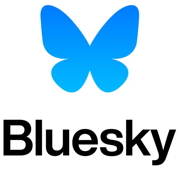Y’all heard the man.
Just a couple more answers to questions for today:
Hulk It Up, Y’all impresses me with his user name and then asks
“Did you ever read Toyfare when it was running? If so, what was your opinion of the magazine, especially Twisted Toyfare Theater?”
I didn’t read it as a regular thing, by any means, but I would poke through the occasional issue. On the whole I liked it a bit more than its sister magazine Wizard. It’s my memory that perhaps Toyfare was a bit less…mercenary, maybe, not so concerned with the value of this and the hotness of that as the comics magazine was. It’s possible I’m not remembering that right, that I wasn’t so concerned with the collectible toy market that I kinda glossed over all that, whereas I would regularly shake my head at some of the nonsense in Wizard, a magazine about the hobby that did occupy most of my attention.
“Twisted Toyfare Theater” (a feature in Toyfare that was basically photo funnies with action figures) was usually pretty amusing…some good, solid, occasionally…well, mostly…sophomoric chuckles were to be had. The paperback collections of those sold well for quite a while. Of course the spirit of Toyfare Theater lives on in the television series Robot Chicken, which some of you may have heard of (and carried over some of the Toyfare Theater creators, which I hadn’t known ’til Googling it up).
ExistentialMan has gone too far with
“Not sure if you’ve addressed this before but how do you manage customer pull-lists? Do you use a web-based site like Comixology, Diamond software or app, paper forms, or some combination of all of the above. What is your policy/approach to clients who visit infrequently and let issues stack up for months? In general, what percent of your average weekly sales can be accounted for with pre-ordered books on pull-lists? Yeah, three questions, I know. Sorry!”
GASP! How dare you! Three questions, indeed!
Ah, well, what can you do? As to your first question, in Ye Olden Days we actually did use paper forms, featuring as many of the currently published titles as we could fit onto there, with extra space for write-ins, that customers could mark off and we’d use to pull books. Of course, that meant updating the forms on a reasonably regular basis and transferring all the customer info from old forms to new ones and sheesh that was crazy. Eventually, we dragged ourselves into the 20th century and started using computerized spreadsheets which made things a lot easier to update and print out for weekly pulls.
As far as pick-up policy, I tend to be a lot more stringent at my new shop than I was at the old, since I’m a smaller store and it’s a bit more of a ding if I get stiffed on a comic saver. Unless arrangements were made with me otherwise (or if you’re a regular of mine from the old shop and I’m familiar with your purchasing habits/timelines), I tend to give people a call after about a month if I haven’t seen ’em. I tend to wait a little longer than I should, and give people multiple calls/emails before I give up on them. Even then I might hold onto their pulls a little bit longer just in case (even if I don’t pull anything new for them) before I file everything back into the stacks.
This brings up something I had gone on about on the Twitters a while back, about how there were pull list customers who hadn’t been in for a while, and I called multiple times, and then I finally close out their boxes…and then they walk in the door, apologizing that they hadn’t been in, that they’ve been getting my calls but haven’t had time to come by. …Okay, if you’re getting my calls, it’ll take a whole, what, 30 seconds to call back and say “Hey, I’m coming in, keep pulling my stuff!” Or you can reach me on Facebook. Or by email. Or on Twitter. I’m not in the Witness Protection Program…I’m easy to reach! If I’m calling you repeatedly about your comic saver, that’s a hint that maybe you’re not going to have a comic saver for much longer unless you call back.
On the topic of “percentage of business” – without getting into specific numbers, let’s just say it’s a not insignificant chunk. It’s good to have a dependable source of income like this…I mean, more or less, discounting situations like those in the previous paragraph. (And thankfully, there haven’t been too many of those!)







